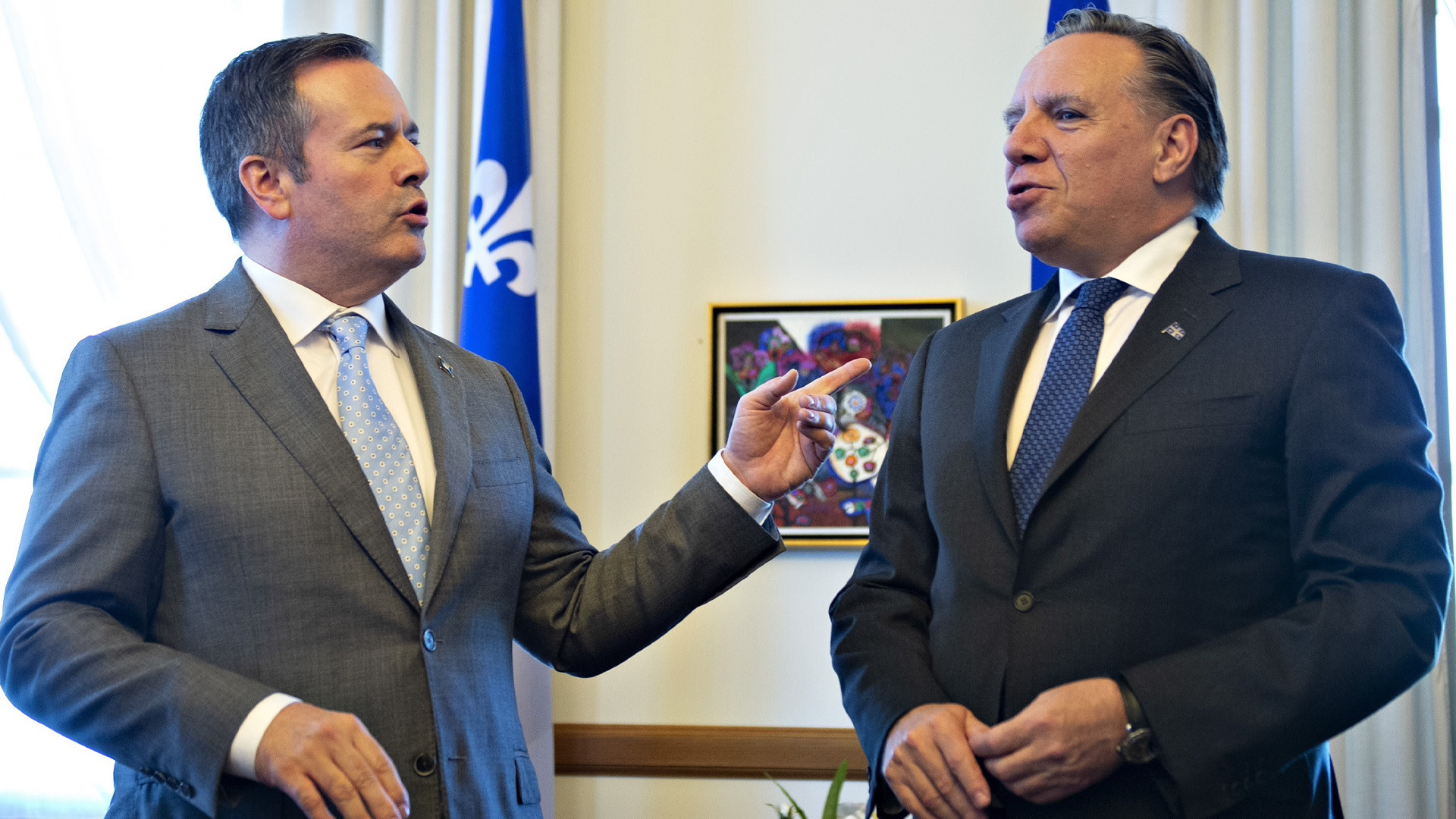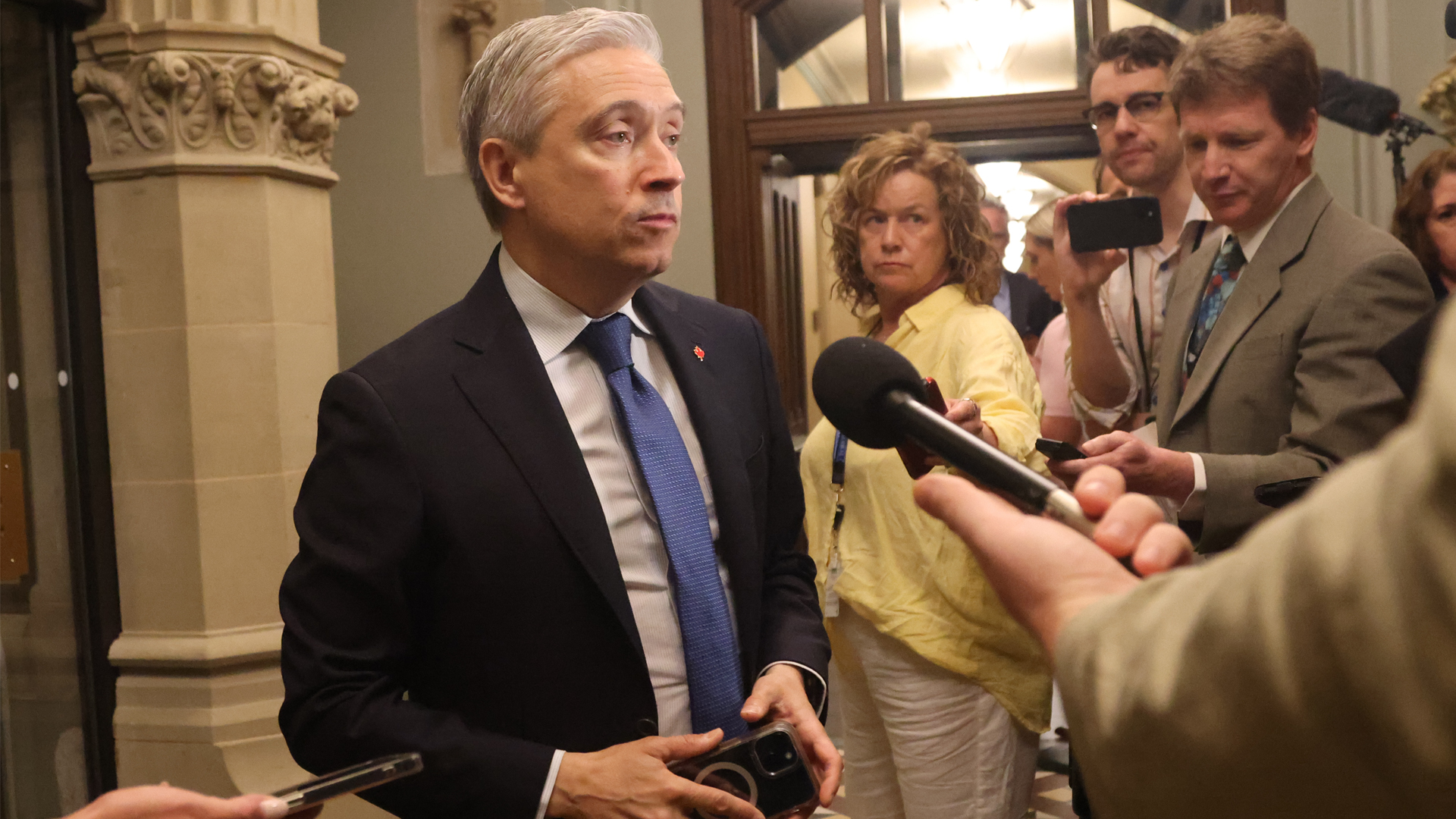On Oct. 18, 2021, Alberta is holding two referendums along with municipal and Senate elections. One focuses on the federal equalization program. Albertans will be asked: “Should Section 36(2) of the Constitution Act, 1982 – Parliament and the Government of Canada’s commitment to the principle of making equalization payments – be removed from the Constitution?” Created in 1957, the federal equalization program transfers a total of almost $21 billion to five provinces whose fiscal capacity (calculated as the revenue that each province could generate at a given and hypothetical rate of taxation) falls below the national average. Currently, these provinces are Manitoba, Quebec, New Brunswick, Nova Scotia and Prince Edward Island.
This has been an issue of longstanding resentment in some nonrecipient provinces, but it’s one that could be ameliorated in part by reforming the governance structure of the equalization program to depoliticize it. Removing decisions about equalization from executive discretion – in other words, away from the internal workings of the governing party in Ottawa – may diminish the potential for political conflict inherent to the program.
The federal government’s commitment to making equalization payments has been enshrined in the Constitution since 1982, and the program has been controversial since its inception. This is particularly evident in Alberta, a nonrecipient province since the early 1960s because of its oil wealth. Following the dramatic drop in oil prices in 2014 and the subsequent deterioration of the province’s economic and fiscal situation, along with the victories of Justin Trudeau’s Liberals in 2015, 2019 and 2021 ─ the formation of a United Conservative Party (UCP) government led by Jason Kenney in 2019 has once again made equalization a major political target in Alberta.
The argument against equalization is that it serves to redistribute Alberta’s riches ─ even at a time when the province’s economy is reeling ─ to other provinces, some of which oppose the further development of pipelines (which the Alberta government deems crucial to the economic development of the province).
Figure 1 below shows that, while more than 80 per cent of Canadians support the equalization program, the recent politicization of the program in Alberta (and in Saskatchewan) has been associated with a decline of support for equalization in the last decade or so. Outside of these two provinces, opposition and support for equalization has remained quite stable since 2001, even in nonrecipient provinces such as Ontario and British Columbia.
In this context, the Alberta referendum is being presented as a political weapon against the federal government, but also against Quebec. The UCP argues that Quebec benefits most from equalization and Alberta taxpayers’ money while standing in the way of pipeline projects deemed crucial to Alberta. Quebec is also seen as a model of provincial autonomy that Alberta should emulate, but is nevertheless a prime political target for Kenney’s attacks on equalization. This situation can be easily explained when one looks at recent public opinion data in Canada.
In a newly published French-language paper published by the Centre of Excellence on the Canadian Federation at the Institute for Research on Public Policy, we show that opposition to the equalization program is mostly driven by resentment of Quebec. Moreover, the federal government and the Liberal Party of Canada are perceived as political entities that serve Quebec’s (and Ontario’s) interests and do not understand the concerns of the western provinces. It is this combination of resentment toward Quebec and alienation from the Trudeau government’s policies that seems to explain opposition to equalization in Alberta and Saskatchewan, while the program remains very popular elsewhere in the country.
In contrast with common wisdom, we show that western alienation, which we measure as perceptions of economic exploitation and unfair representation, does not alone decrease support for equalization. Only when it is combined with the perception that Quebec is favoured in the federation does western alienation lower support for equalization, revealing what is known as place-based resentment.
To create place-based resentment, a sense of identity must be tied to a place, and resentment must be directed at political elites perceived to cater to the needs of another territorially based community whose members have a different sense of identity. If residents of Alberta or Saskatchewan feel that the federal government treats their province unfairly and perceive that the federal government favours another province with a distinct identity (such as Quebec), place-based resentment occurs.
Our study also shows that personal identification matters a great deal for explaining preferences for equalization. We show that when people predominantly identify with Canada, that fosters a sense of solidarity with the whole country and increases support for equalization redistributing resources to the poorer provinces. In contrast, people identifying predominantly with a province are less likely to support redistribution toward another province, as their community of solidarity coincides primarily with their province.
As such, political conflicts around equalization are less about the economic positions of recipient and nonrecipient provinces than about people’s sense of identity and perceptions of Quebec. In other nonrecipient provinces, such as Ontario and B.C., resentment of Quebec and one’s sense of identity also influence support for equalization.
The Alberta referendum on equalization will not lead to the elimination of the program, in part because Alberta has no direct power over the program and in part because support for equalization remains strong across the country. Equalization in Alberta is a symbol of the most recent wave of regional alienation over oil pipelines, together with the idea that the province is treated unfairly within the Canadian federation.
As well, by focusing on this symbol, Kenney is seeking to deflect attention from his policy decisions, now unpopular among many supporters of his own political party, and to blame the federal government and other provinces ─ particularly Quebec ─ for Alberta’s economic woes and difficulties in dealing with the pandemic. In fact, more than 80 per cent of Albertans are dissatisfied with his management of the pandemic, and his party is trailing the NDP by at least 13 percentage points in vote intentions.
It is more profitable for politicians like Kenney to maintain the perception that Alberta’s current economic and fiscal problems are caused by the federal government and/or Quebec than it is to convince Albertans to enact the reforms necessary to fix them. Quebec finances its low university tuition fees, subsidizes its child care program and offers drug coverage primarily through higher provincial taxes, including a 9.975 per cent sales tax. Alberta could put its fiscal house in order by ceasing to be the only jurisdiction in Canada that does not impose a provincial sales tax. In a federal system, it is always tempting for some politicians to blame other jurisdictions for their province’s ills.
Reform of the governance structure of the program may be warranted to reduce the politicization of equalization. In Canada, the governance of equalization rests on the principle of executive discretion, meaning that all decisions related to the program are taken by the federal executive.
Because elected politicians are responsible for the management of the program, there are potential perceptions that politics may guide decision-making on equalization. Provincial leaders know they can extract concessions from the federal government by encouraging resentment about the program. By contrast, arm’s-length management of equalization through an independent commission (such as one like Australia’s Commonwealth Grants Commission) would reduce the potential for place-based resentment, because to some extent it would depoliticize the decision-making process.
The more serious place-based resentment of equalization in Canada, when it is compared to the experience in Australia, owes much to the countries’ different governance structures. Revising the equalization formula to adapt it to changing economic and fiscal circumstances is essential, but changing the governance process through which this is done should also be on the agenda in Canada.











